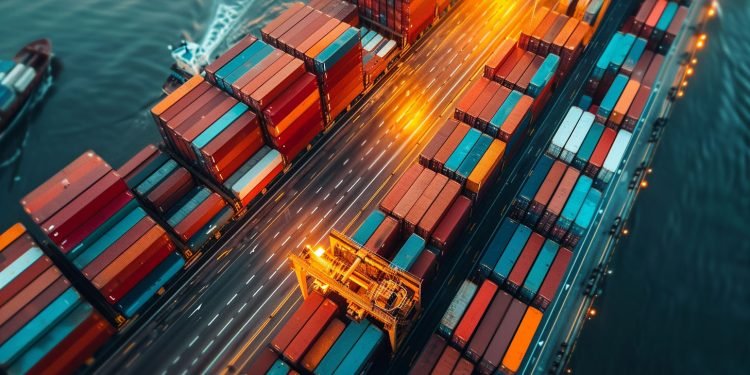The world of logistics is undergoing a revolution, driven by the emergence of innovative technologies. One technology poised to significantly disrupt the industry is blockchain. This secure, distributed ledger system offers a powerful tool for enhancing transparency, traceability, and efficiency across the entire supply chain.
What is Blockchain?
Imagine a digital record book, accessible to all authorized participants, where every transaction is permanently recorded and tamper-proof. This is the essence of blockchain technology. Data can be tracked in real-time, providing stakeholders with a clear picture of where goods are located, their condition, and ownership at every step of the journey.
Revolutionizing Logistics:
Here’s how blockchain is transforming logistics:
- Enhanced Transparency: Blockchain allows for real-time tracking of goods, from origin to destination. This fosters trust and accountability within the supply chain, reducing the risk of fraud and counterfeiting.
- Improved Efficiency: Streamlined document handling and automated processes facilitated by blockchain can significantly reduce paperwork and expedite customs clearance, leading to faster delivery times and lower costs.
- Greater Visibility: All participants in the supply chain can access relevant data about a shipment, enabling them to anticipate potential issues and proactively manage logistics operations.
Benefits for Businesses:
- Reduced Costs: Blockchain can streamline operations, minimize errors, and optimize resource allocation, leading to significant cost savings.
- Improved Customer Satisfaction: Enhanced transparency fosters trust and allows businesses to provide customers with real-time shipment updates, improving overall customer satisfaction.
Challenges and Considerations:
- Integration: Widespread adoption requires integrating blockchain technology with existing logistics systems across different companies.
- Standardization: Standardization of data formats and protocols across the industry is crucial for seamless information exchange within the blockchain network.
- Regulation: The regulatory landscape surrounding blockchain is still evolving, requiring businesses to stay informed about emerging regulations.
The Future of Logistics:
While challenges remain, the potential benefits of blockchain for the logistics industry are undeniable. As the technology matures, and integration hurdles are overcome, we can expect blockchain to become a fundamental building block of a more transparent, efficient, and secure global supply chain.
Beyond the Basics: The applications of blockchain extend beyond basic track-and-trace functionalities. Smart contracts, self-executing agreements stored on the blockchain, can automate tasks within the supply chain, further streamlining operations and minimizing errors. Additionally, blockchain can facilitate secure and efficient trade finance transactions, improving cash flow for businesses.
The Future is Now: Forward-thinking logistics companies are already implementing blockchain solutions to gain a competitive edge. As the technology continues to evolve, we can expect its impact on the industry to become even more transformative. The future of logistics is demonstrably connected, transparent, and powered by the secure and efficient world of blockchain.























